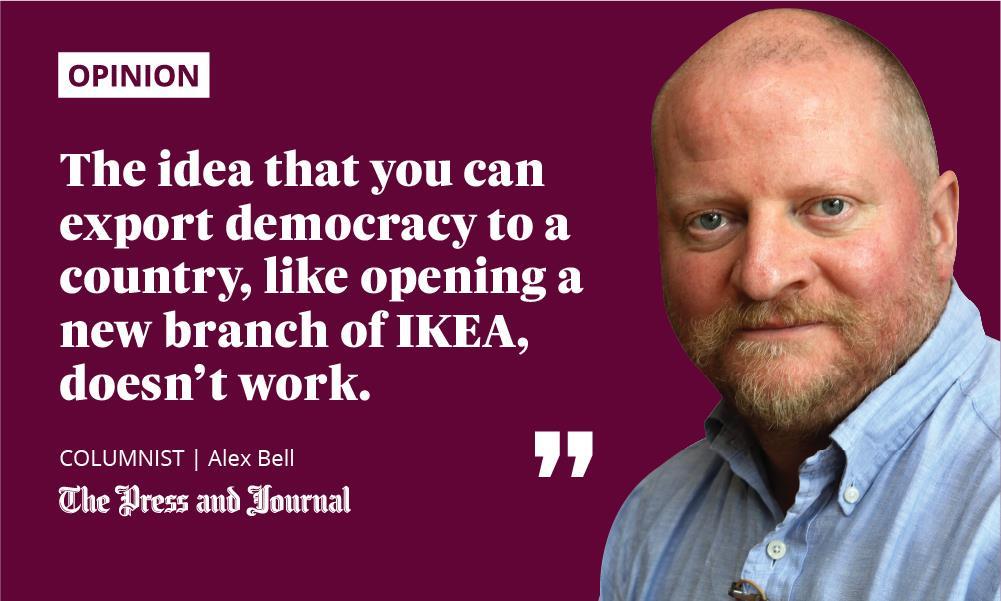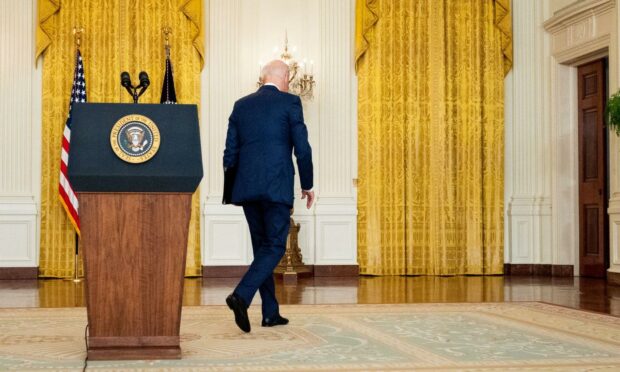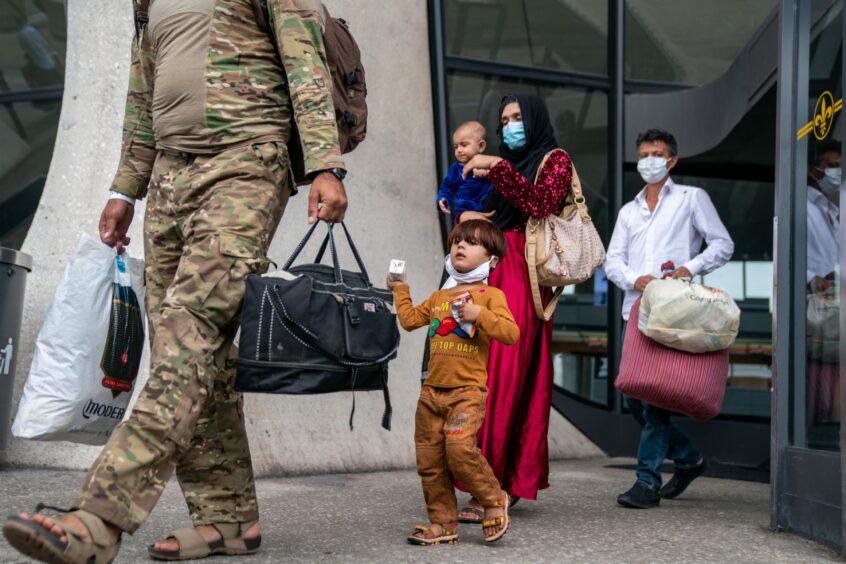Goodbye America. The world’s cop is turning in its badge. President Biden says the era of American intervention is over.
“This decision about Afghanistan is not just about Afghanistan. It’s about ending an era of major military operations to remake other countries,” said the US president, defending his decision to pull out of Kabul.
From now on, he suggested, American troops would stay at home.

We have been here before. America became the worlds richest state around the beginning of the 20th century.
Big population, advanced economy, industrial strength – all the ingredients for a global leader. It was a role that never sat easily with the public.
It came late to the World Wars and, by Vietnam, had learnt that projection of force did not work. That’s 1917 to 1975. A 50-year period. Which ended roughly 50 years ago.
Britain in a disastrous position
President Biden is not radical in ending the era of intervention, but conservative.
It’s tempting to write him off after Kabul, but his latest speech, coupled to his hugely radical economic recovery plan, means he might yet emerge as the man who reinvented America.
This decision about Afghanistan is not just about Afghanistan. It's about ending an era of major military operations to remake other countries.
— Joe Biden (@JoeBiden) September 1, 2021
For Britain, the news is disastrous.
As America’s ally, the UK stood on the shoulders of Uncle Sam; a dutiful parrot to its master. This greatly enhanced its post-empire reputation and global leadership credentials.
Now it finds itself outside Europe, dumped by America and short of friends. It is hard to imagine a worse position.
Saddled with obligations to NATO while trumpeting the empty slogan “Global Britain“, it looks like a chump.
The bigger issue is global security.
The temptation is to say we are staring into the abyss. A strong China, chippy Russia, unstable Iran, barmy North Korea – alongside the crisis in land use and resources prompted by climate change – is a combustible mix.
Cause for optimism across continents
Yet, there are many reasons for optimism, too.
The Asia Foundation has been surveying public opinion in Afghanistan for 20 years. The results show majority support for women’s rights, economic development and support for peace.
The Afghan people want what we all want – a peaceful life with the chance to develop, personally and collectively. Its struggle is to find leaders in tune with the people.
African countries report similar findings. People want to get on with life, not to forever be sunk into corruption or conflict.
And while the African continent has a long way to go in achieving western style stability, it has made huge advances in the last two decades.
In part, Africa has been helped by China, which is investing billions in infrastructure projects around the world. Chinese roads, rail and ports are boosting global development.
Beijing partly does this to claim natural resources, but that is no different to the foreign policy objective of Washington or London before it.
India is light-years ahead in terms of education, health and economic development. Its politics still spasm to nationalist sentiment, but there is no reason to think it’s about to inflate border scuffles with Pakistan and China into war.
The world is not dividing. It is becoming unified by the internet and mobile phones
What’s more, like the Afghans, all these populations would prefer to develop and access western standards of wealth and stuff than go to war.
The world is not dividing. It is becoming unified by the internet and mobile phones.
It is much harder to paint one nation as other or different in the age of connectivity. Governments may try, but populations resist.
Development not democracy
In large part, that’s what the people of Britain and America have told their politicians. They don’t want their children to die on foreign fields for abstract values.
We have seen that foreign intervention rarely succeeds.
The idea that you can export democracy to a country, like opening a new branch of IKEA, doesn’t work. And, in fact, you might be better providing the joys of flat pack furnishings, to show the undeveloped land what it is missing.
At the time of the Arab Spring, when a number of countries in North Africa and the Middle East revolted, western observers were keen to say it showed the triumph of democracy.
A few weeks ago, the last country not to fall back into authoritarian rule, Tunisia, closed its parliament.
The fact of the matter is that nation building and development is a messy business.
People with a common identity need to be left to muddle through as best they can. The role of the richer nations is to let them. Offer help if it’s welcomed, but don’t intervene.
Global security can still be achieved. Cyber scrutiny, intelligence gathering and cooperation will do more to control weapons of mass destruction or track terrorists than large armies.
The preservation of international trade governed by set standards allows all nations to play the global game.
The free travel of people and goods, the slow blending of all races and cultures as we live in new places, is as good a path to freedom as carrying big sticks.
That said, America isn’t giving up. It may not be the world’s cop, but it’s still the biggest bruiser on the planet. Until that ends, there are good reasons for optimism.

